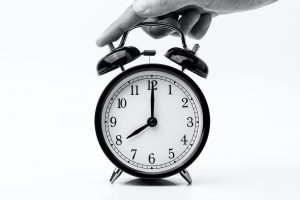 How many times have you heard you shouldn’t eat after 8pm? I’ve heard a lot of reasons, one of which is the most popular, but definitely not true. That reason is that the food digests and since you’re not moving, immediately turns to fat. There is a type of logic to that, but you have to remember, no matter when you eat it, a calorie is still a calorie and if you eat 3500 more calories than you burn, you’ll gain a pound. It doesn’t matter when you eat it.
How many times have you heard you shouldn’t eat after 8pm? I’ve heard a lot of reasons, one of which is the most popular, but definitely not true. That reason is that the food digests and since you’re not moving, immediately turns to fat. There is a type of logic to that, but you have to remember, no matter when you eat it, a calorie is still a calorie and if you eat 3500 more calories than you burn, you’ll gain a pound. It doesn’t matter when you eat it.
What’s the link to nighttime eating and weight gain?
If you’re prone to snacking at night after 8 pm, there are two problems. The first is that you’re extending the amount of time you eat. Studies show if you limit your window for eating, you’ll eat less, even if you’re not trying to lose weight. Intermittent fasting is based on that fact. Intermittent fasting can be fasting for a day or two or fasting for 16 hours and eating during the other 8 hours. Studies show that people who do this, eat less.
Eating after 8 pm can have health consequences.
If you find you have a runny nose frequently, sinus infections, sour mouth, digestive issues, chest pain and even more dental carries, AND you frequently eat right before bed, you might have acid reflux. Acid reflux can cause stomach acid to splash back due to an improperly functioning or weak sphincter muscle. It can damage the esophagus, causing it to narrow and more recently, has been found to be the cause of chronic sinus infections. Obesity plays a role in it too, so if you put on weight from eating at night, you’ll make it even worse.
Most late night snacks aren’t exactly models of healthy eating.
If it’s 11 or 12 pm and you’re hankering for a snack, you probably won’t take the time to create a healthy one. Most people raid the refrigerator or cupboard, looking for something that’s quick. While some may opt for fruits or vegetables, most opt for snack foods like chips, cookies and cake. There are some people that have to eat, or they can’t fall asleep. If you don’t have enough calories, there’s an instinct to stay awake and look for food. Food high in tryptophan can help create niacin, which is necessary for serotonin that helps you sleep.
- If you’re in the group that can’t sleep without food in your stomach, be prepared with healthy options that are higher in protein. Have deviled eggs, cheese, chicken slices or veggies with Greek yogurt dip.
- Other foods that will help improve your sleep are those with magnesium. Magnesium helps relax smooth muscle tissue and reduces stress hormones. Both help you fall asleep faster.
- Eating at night can also cause digestive upsets. While the calories don’t just go to fat, your digestion does slow down when you sleep. It’s also a time when the tissues repair.
- Eating fatty meals and snacks before bed can also affect your digestive system. Saturated fat can also affect your sleep in a negative manner. It causes an interruption of NREM sleep, which is the first stage of sleep.
For more information, contact us today at LIV Fitness
